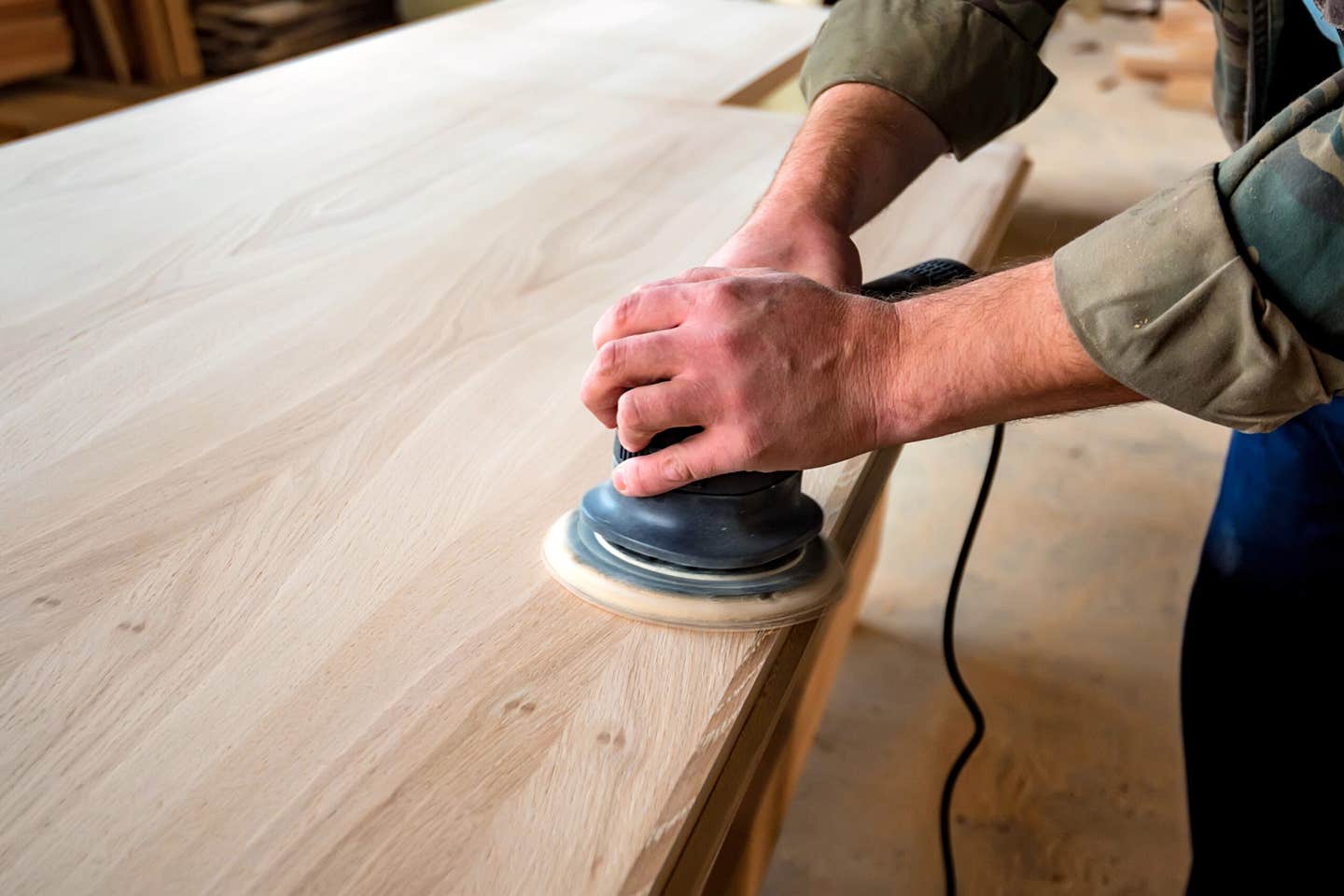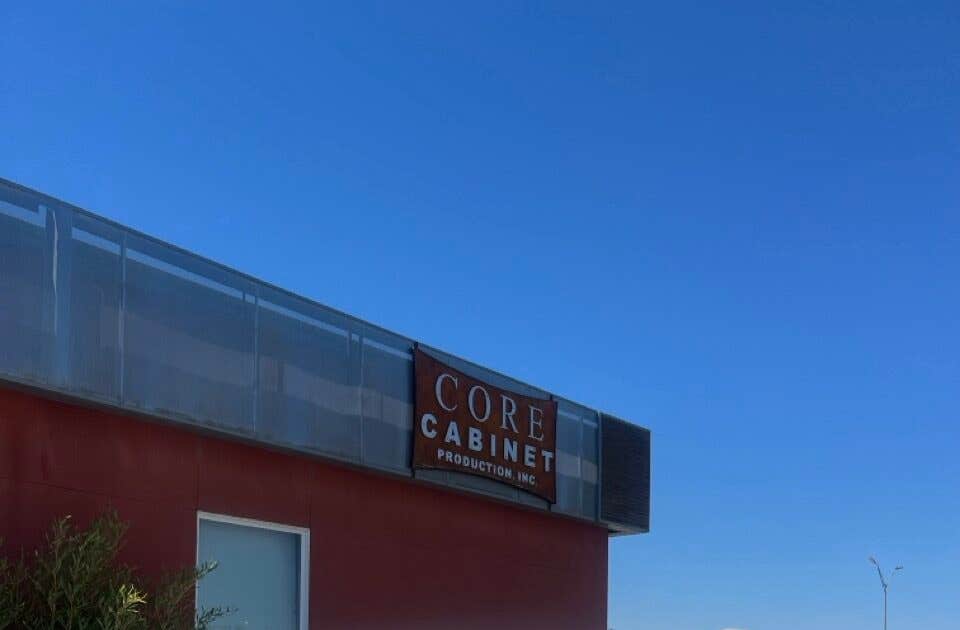A two-stop shop
Doug Green is doing so well with his shop in Wilmington, Del., that he’s building a second one about three hours away.
Doug Green Woodworking & Millwork in Wilmington, Del., is a turnkey shop that has provided custom work and restoration services for clients throughout the mid-Atlantic region for decades. Founder and principal Doug Green considers himself an “old school” woodworker who gets by just fine without any high-tech equipment.
“We always have a backlog of at least two months. People ask us what our lead time is and I tell them it will be a while. But I say get it in here because if we are waiting for something, we will start it,” says Green.
Green has two employees, Gabriel Nabariet and Seth Hansen, and has little to no competition in the area. He says that remaining solvent has been a key factor to his success.
“There’s really no one left around here. Maybe I charged better prices than they did. It could be, I don’t really know. I’ve managed, everybody else went out. A lot of people don’t own their machinery. They finance it and they end up losing it. Those are the ones I watched go. There were like ten shops around here and they’re all out of business now. There’s another shop with a CNC router and all that and we work together, but there’s really nobody else. If so, I don’t know of them.”
Green is in the process of opening a second shop about three hours away on the Delmarva Peninsula. At age 65, he’s happy to be forging ahead with a career switch he made decades ago.
Exploring careers
Green grew up around Jamestown, N.Y., where members of his family owned the Green Brothers lumber mill, established in 1862. In the 70’s, some of the big furniture manufacturers in the area moved away and the family sold the multi-generation business to a large paper processing company. The payout provided the means to send the children off to boarding schools, among other things, according to Green. Green attended South Kent School in South Kent, Conn. He then went to Marietta College in Marietta, Ohio, where he studied chemical engineering.
“I learned to be a petroleum engineer. I couldn’t find a job. So, I moved to Philly and worked as a mortgage banker. I realized from the people walking in and applying for loans what the contractors were getting paid to do all this crazy stuff that people needed. This is back in ’83, ’84, and I switched what I was doing because I didn’t like sitting behind a desk.
“I started painting houses, and I found from painting houses that someone would need a new porch post. So, I got a lathe so I could make a porch post, and that’s kind of the way it went. You just learned how to do what was needed. [Eventually] I got a job where I actually learned for real how to do mortise and tenon joints, dovetails and all that stuff proficiently, and ended up getting the equipment that was needed.”
It wasn’t until his 30s and living in the Wilmington area that he decided to hang his own shingle.
“I’ve been doing this since ’86. I was an apprentice for a long time. I was afraid to go off on my own. I had children and did not want to let them starve. But after 11 years of being an apprentice, I had people offering me work and just went off on my own.”
Green moved in and out of shops on the outskirts of town, from an attic to a three-car garage, a 10-car garage, then a large warehouse before settling in at his current location in 2008. He owns the building on a commercial stretch in town which provides roughly 6,000-sq.-ft. of production and office space.
Extensive portfolio
Whether residential, commercial or government issued work, Green says the company literally does everything under the sun.
“It’s random. There’s no rhyme or reason to it. Some years you’ll get like four shutter jobs in a row. I don’t know why, but there will be four people coming in to order shutters. Or there will be a couple of stairs jobs.
“We’re currently working for the National Park Service, which is very good to work for. They’re building a museum out of a sheriff’s house in New Castle. It’s an old building from the 1680s and they’re restoring it. We’re making a lot of the doors, windows, flooring, trim, millwork, stairs…Everything that was beat up and broken.”
Residential work is typically renovation work in higher-end homes. The shop has done large-scale projects for the University of Delaware, Thomas Jefferson University, and University of Pennsylvania, and historic preservation projects for Constitution Center and Independence Hall in Philadelphia and Primitive Hall in West Grove, Pa. You’ll also find its work at Klondike Kate’s, Columbus Inn, Walter’s Steakhouse, and other restaurants in the area.
“We also do lots of work for churches these days. Everybody’s getting into wheelchairs, so I end up renovating a lot of church pews where we cut them down so they’re wheelchair accessible.”
Running efficiently
Green reiterates that one of his company’s biggest strengths is keeping everything simple. He does drawings by hand, for example, and is not interested in automated equipment.
“If I found someone who could come in and take charge of that, maybe. But we’re doing things the way they did in the 1950s and 1960s. It’s all you need. Everything is such a small run. It’s all custom. By the time you get that CNC set up, I’m already done making it using the old techniques.”
In turn, the shop has successfully weathered economic fluctuations.
“Covid was great for us. It didn’t bother us. The [Great] Recession didn’t hit us right away. We rolled through like a freight train as we were moving here.”
Green hired Nabariet in 2008, and Hansen last year. “The guys are good,” says Green. “It’s hard to hire someone because you don’t know if you have enough work for them. I’ve had no trouble keeping them busy.”
A second shop
Green’s new shop will be near the town of Melfa, Va. He purchased a three-acre plot of land for about $38,000 where he is building a 7,000-sq.-ft. shop where he will have room for a sawmill and kiln. The area is on Route 13 of the Delmarva stretch between Ocean City, Md., and Norfolk, Va., which is rather sparsely populated.
“There’s nothing there. They really need somebody there. It’s about three hours away. I needed something and I just don’t have room here. I’m going to have two shops with a crew here and a crew there. I bought the land and it’s right on a major highway. I’m building a building and hopefully it will be done by spring.
“That’s going to be a boat shop. I’ll be doing boats and whatever I can do, maritime work. There are no shops down there. There just aren’t and I’ll do okay. We do a lot of boat work. People ruin their boats all the time and we do the interior over,” says Green, who did extensive restoration work on the Kalmar Nyckel. “It’s an authentic tall wooden ship down here at the port. We made everything for it. It all went through here.”
Green is also an avid rower who competes around the world and has won many awards. It’s a hobby he says helps keep him fit and healthy and will stave off early retirement. He recognizes it’s a big undertaking to start a new shop but says he’s simply out of room where he is and the real estate in Wilmington isn’t affordable. He knows he’s made a good investment.
“It’s really important to own your own building, I think, because all of a sudden people will lend you money and you can buy equipment. All of the things that have been an obstacle for you, they kind of go away. And all of a sudden people just start walking in off the street. It’s usually just enough to pay your mortgage. So, it’s risky, it’s scary, but it’s worth it, if you can find a good spot. I got lucky with these places.”
For more, visit douggreenwoodworking.com.
This article was originally published in the January 2024 issue.







